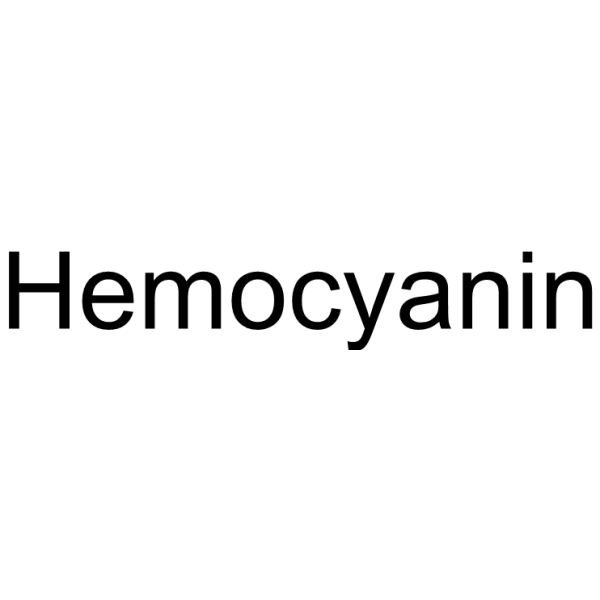Hemocyanin

Hemocyanin structure
|
Common Name | Hemocyanin | ||
|---|---|---|---|---|
| CAS Number | 9013-72-3 | Molecular Weight | N/A | |
| Density | N/A | Boiling Point | N/A | |
| Molecular Formula | N/A | Melting Point | N/A | |
| MSDS | USA | Flash Point | N/A | |
Use of HemocyaninHemocyanin is a large copper-containing respiratory protein. Hemocyanin is an important non-specific innate immune defense molecule with phenoloxidase, antiviral, antibacterial, hemolytic, and antitumor activities[1]. |
| Name | Cellulose DEAE |
|---|---|
| Synonym | More Synonyms |
| Description | Hemocyanin is a large copper-containing respiratory protein. Hemocyanin is an important non-specific innate immune defense molecule with phenoloxidase, antiviral, antibacterial, hemolytic, and antitumor activities[1]. |
|---|---|
| Related Catalog | |
| Target |
Human Endogenous Metabolite |
| References |
| InChIKey | NECYLMLMGRVXJM-UHFFFAOYSA-N |
|---|---|
| SMILES | CCCCCCCCC=CCCCCCCC(C)C(=O)OCCO.CCCCCCCCC=CCCCCCCCC(=O)OC(C)CO.CCCCCCCCC=CCCCCCCCC(=O)OCC(C)O |
| Storage condition | -20C |
|
Binding of WIP to actin is essential for T cell actin cytoskeleton integrity and tissue homing.
Mol. Cell. Biol. 34(23) , 4343-54, (2014) The Wiskott-Aldrich syndrome protein (WASp) is important for actin polymerization in T cells and for their migration. WASp-interacting protein (WIP) binds to and stabilizes WASp and also interacts wit... |
|
|
Identification and characterization of the related immune-enhancing proteins in crab Scylla paramamosain stimulated with rhubarb polysaccharides.
Mol. Immunol. 57(2) , 263-73, (2014) Recently, considerable interest has been focused on immunostimulants to reduce diseases in crab aquaculture. However, information regarding to the related immune-enhancing proteins in crabs is not ava... |
|
|
Tofacitinib suppresses antibody responses to protein therapeutics in murine hosts.
J. Immunol. 193(1) , 48-55, (2014) Immunogenicity remains the "Achilles' heel" of protein-based therapeutics. Anti-drug Abs produced in response to protein therapeutics can severely limit both the safety and efficacy of this expanding ... |
| MFCD00131280 |

